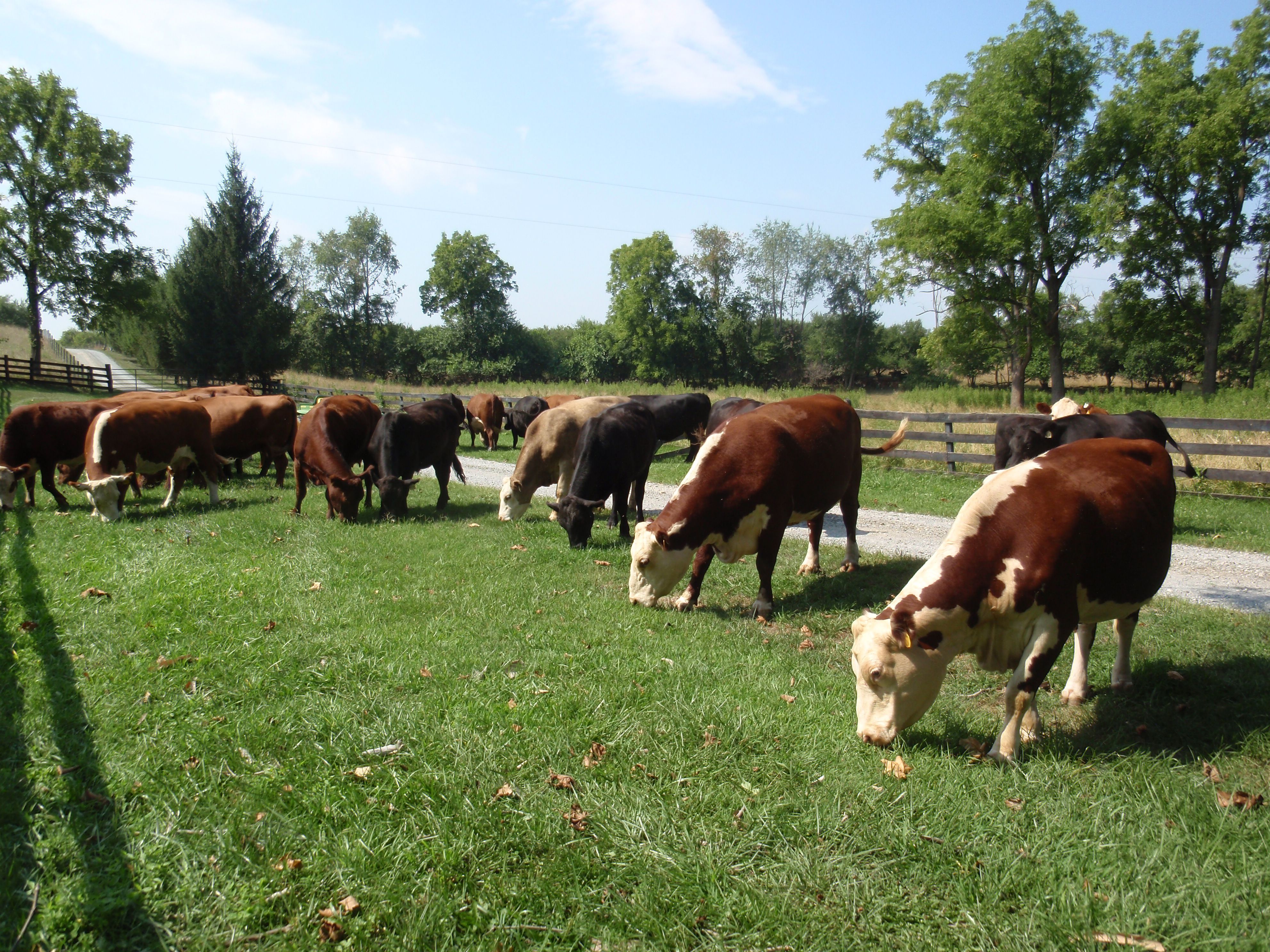Grass Fed Beef
The definition of Grass Fed Beef generally means beef from cattle that have eaten only grass or forage throughout their lives, however some producers do call their beef grass fed but then actually finish the animals on grain for the last 90 to 160 days before slaughter.
Grass Finished Beef
A more specific definition is Grass Finished Beef. Finishing is just another word for the time that cattle are normally fattened for the last few months before processing. Typically, feed lots finish cattle for 90 to 160 days on grain, usually corn, whereas, grass finished cattle are fattened on grass only, until the day that they are processed. - GrassFedBeef101.com
Nutrient Content
Meat and dairy products from grass fed animals are ideal for your health. Compared with commercial products, they offer you more "good" fats, and fewer "bad" fats. They are richer in antioxidants; including vitamins E, beta-carotene, and vitamin C. Furthermore, they do not contain traces of added hormones, antibiotics or other drugs. - Eat Wild
Fat Content
Because meat from grass-fed animals is lower in fat than meat from grain-fed animals, it is also lower in calories. (Fat has 9 calories per gram, compared with only 4 calories for protein and carbohydrates. The greater the fat content, the greater the number of calories.) As an example, a 6-ounce steak from a grass-finished steer can have 100 fewer calories than a 6-ounce steak from a grain-fed steer. If you eat a typical amount of beef (66.5 pounds a year), switching to lean grassfed beef will save you 17,733 calories a year. - Davidson, M. H., D. Hunninghake
Omega 3 Fatty Acids
Meat from grass-fed animals has two to four times more omega-3 fatty acids than meat from grain- fed animals. Omega-3s are called "good fats" because they play a vital role in every cell and system in your body. For example, of all the fats, they are the most heart-friendly. People who have ample amounts of omega-3s in their diet are less likely to have high blood pressure or an irregular heartbeat. Remarkably, they are 50 percent less likely to suffer a heart attack. - Siscovick, D. S., T. E. Raghunathan
The benefits of omega-3s include reducing the risk of heart disease and stroke while helping to reduce symptoms of hypertension, depression, attention deficit hyperactivity disorder (ADHD), joint pain and other rheumatoid problems, as well as certain skin ailments. Some research has even shown that omega-3s can boost the immune system and help protect us from an array of illnesses including Alzheimer's disease. - Louise Chang, MD


